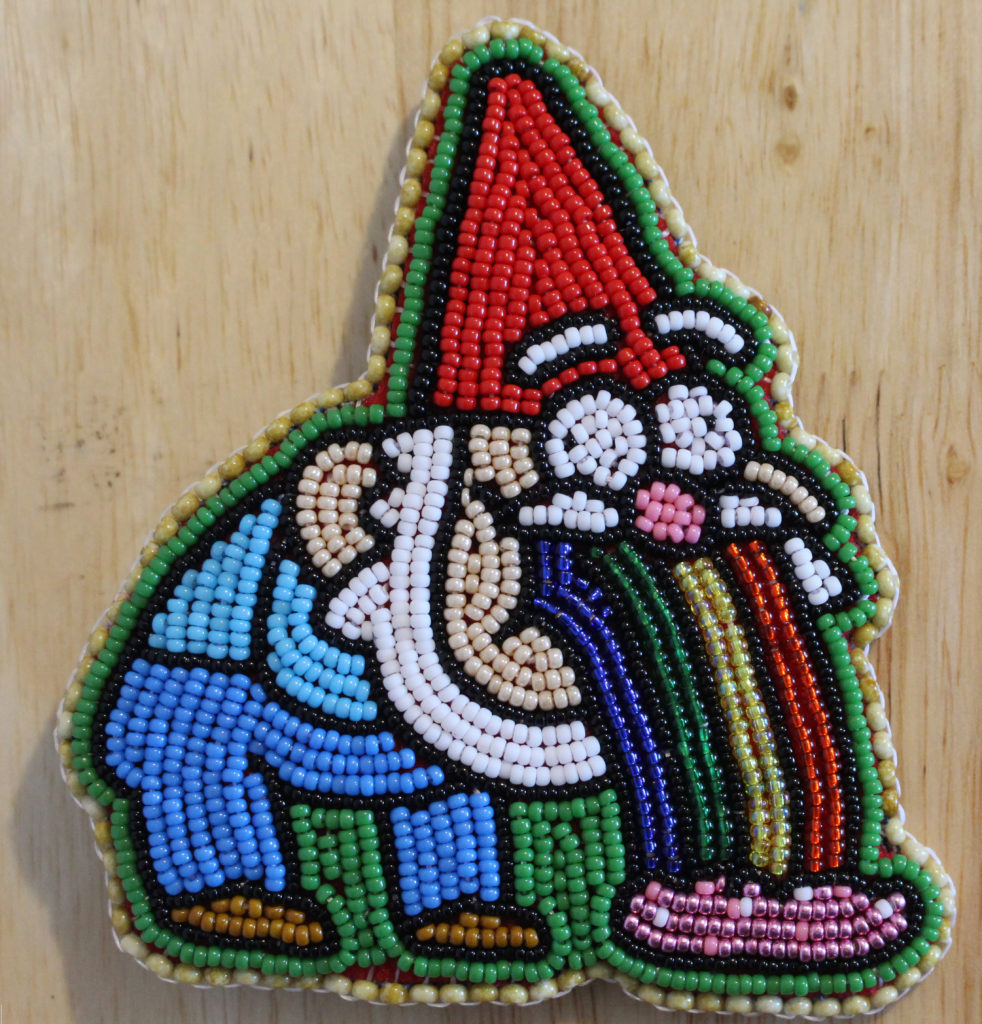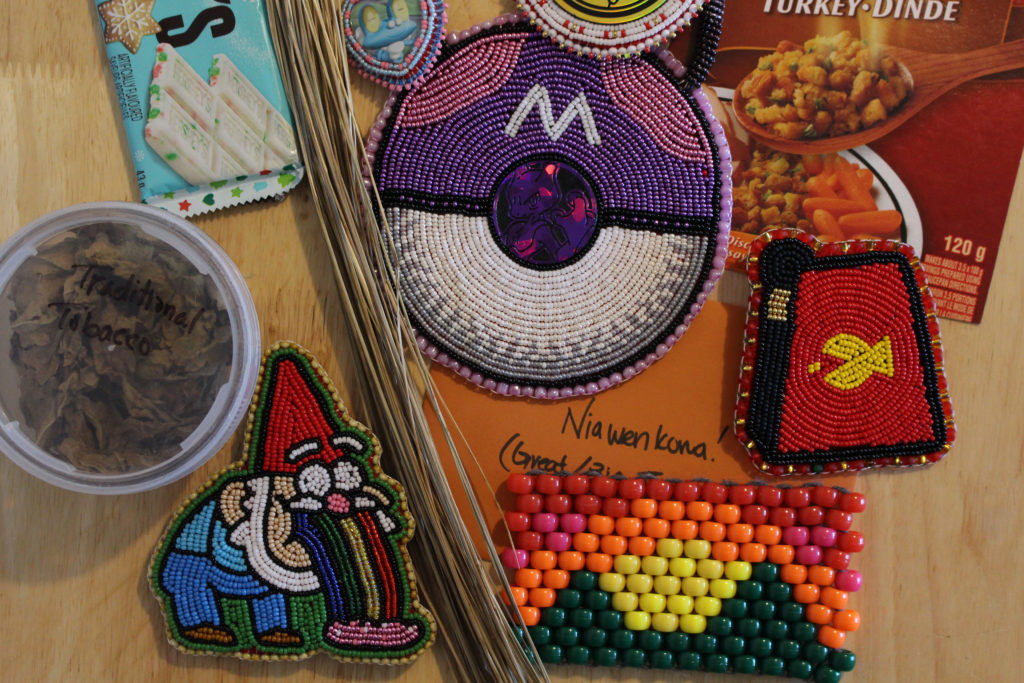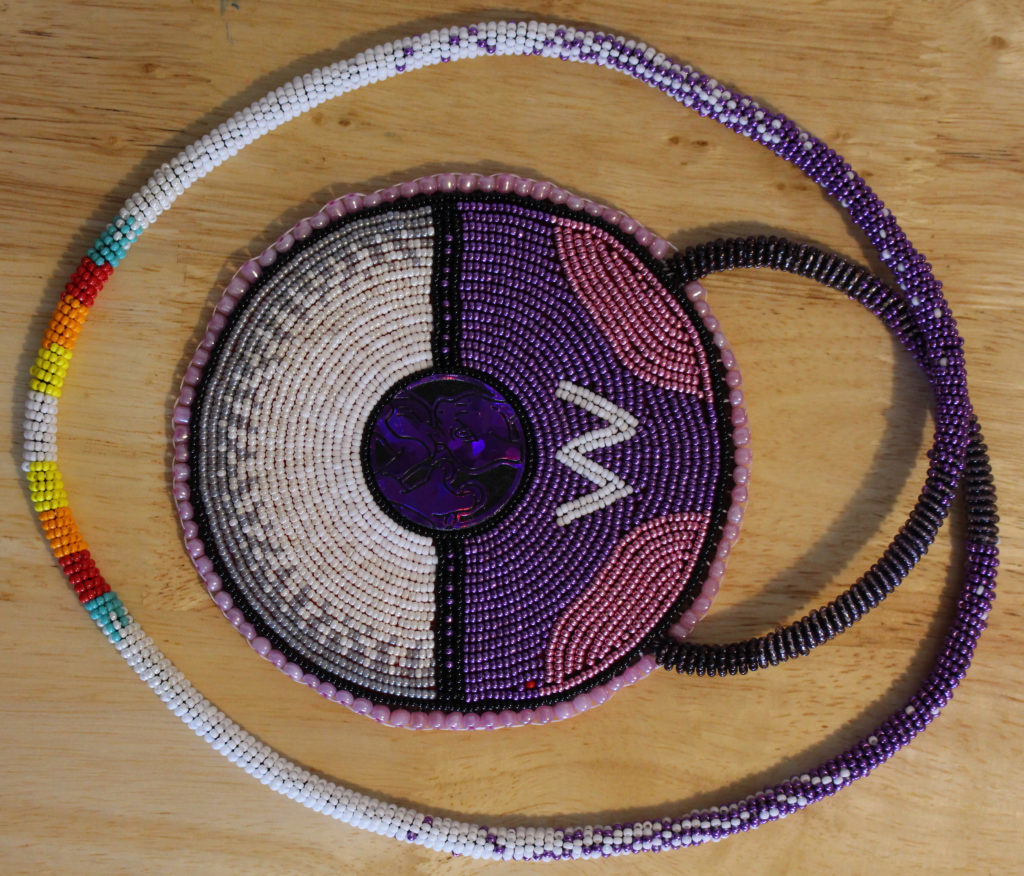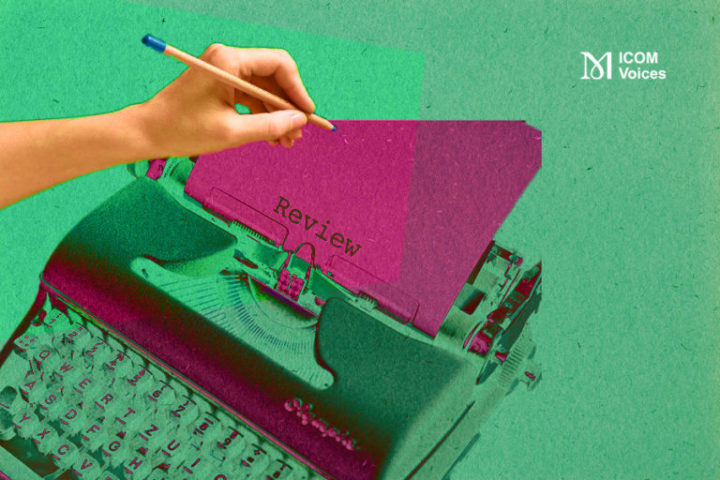
Laura Phillips
Sessional Lecturer in Museum Studies and Information Management, University of Toronto
Museums have no borders,
they have a network
August 28, 2023
I have faced this issue with other editors and peer reviewers, and present this article as a series of recommendations to consider – especially if you are in one of these positions of authority – to encourage reflection on the peer review process and the different meanings of ‘peer’. I write from my position as a white critical settler scholar of European ancestry (and UK/Canadian citizenry). This personal opinion piece is meant to help publications avoid (inadvertently) re-inflicting colonial violence and a limited worldview in spaces that are meant to be otherwise.
As observed by my close Kanien’kehá:ka/Euro colleague Heather George, Director of Woodland Cultural Centre, the issue with the comments and edits I received (in this and other instances) was that my work was not being reviewed by my peers. This gave me pause – who do I consider to be my peers? What is the difference between people in a ‘peer review’ role or acting with editorial authority in an academic context, versus the peers in my immediate professional and personal context?
This article presents statements that, while they brought up questions for the peer review panel, represent common considerations among my peers (personal colleagues)… These comments represent contextual knowledge and agreements that come from a place of shared understanding through a relational kinship ethos rather than authority or anonymity. These points could be seen as a type of shared decolonising and Indigenising protocols, learned from many Indigenous sources and resources, and underlined by acts of care for each other. Using the word ‘protocols’ sounds somewhat formal. Perhaps thinking of these statements as starting points for a peer/kin relationship better reflects what can be built from these foundational principles. I am certainly not saying that my peers and I always agree, but these points ground the decolonising and Indigenising work we are trying to achieve from our varied positionalities. From my place working in the academic context of educational, and museological structures in Canada, I see my peers as folks embedded in the process of doing the hard work of challenging themselves to think in new ways, and/or generously extend patience to the long process of dismantling colonial structures, and/or accept criticism with humble gratitude and/or appreciate the free labour that many people do to educate and re-educate each other as we embark on these journeys, and/or spend time reflecting on processes or situations where we may have erred so that we can do better next time.
These points demonstrate ways to activate and (minimally) comply with the United Nations Declaration on the Rights of Indigenous Peoples on an International scale, even though they were learned through a more intimate, local, peer group and with my lived experiences in Canada. Citations – beyond standard bibliographic referencing – are an essential part of visibilizing where our teachings come from. I include the key texts that I have learned from, though the many conversations with my peers and teachers on these topics cannot adequately be referenced here aside from me typing my deepest thanks to you all. I extend special thanks and endless gratitude to settler artist and scholar Hadley Howes, one of my beloved peers, who talked through this topic with me before I submitted my final draft.
Colonialism is ongoing and European nations continue to benefit from extraction
When writing of any location and peoples that experienced European colonial expansion and settler colonialism from 1492, please do not express this as being in the past. Colonialism is ongoing – federal states have committed and continue to commit genocide against Indigenous Nations. In what is now known as Canada, this started with Europeans – especially Great Britain and France. Today, we use the word settler to describe any non-Indigenous person whose presence was or continues to be enabled by colonial governments.
European nations continue to benefit from massive economic boosts from colonial extraction, relocating surplus populations to colonial lands as settlers, as well as from massive capital wealth formed from the past five centuries of transactional land theft, kidnapping and purchasing people to enslave, and looting cultural belongings for public and private collections. These transactions were every bit as immoral, unethical and fraudulent (even by capitalist reckoning) in the past as they are now understood to be. Despite many calls for restitution, repatriation / rematriation and repair, the wealth cycle continues unabated.
Respect Indigenous languages when you name people, places, plants, animals etc.
If you are writing from or about any land outside of Europe take the time to find out what the original Indigenous names are for places, plants, peoples, and animals. Decentre colonial and imposed European languages. Not doing this erases millennia of knowledge and existence. Understand that terms like ‘Woodland’ and ‘Eastern Sub Arctic’ were labels given by Europeans for convenience because they did not know, understand or have available to them the actual facts of the Land and the peoples here.
When you use a place name imposed by European colonialism it is correct to say ‘what is now known as’, ‘recently known as’ or ‘referred to in settler geographies as…’. This phrasing respectfully recognises the multiple millennia before now whereby other names were used. If you know them, include them (and if you don’t know them, find out!). For example, what we know of as Canada today came to be in 1867 when the Hudson Bay Company sold stolen land known as Rupert’s Land (the Hudson Bay watershed) to the Dominion of Canada – without consultation of any Indigenous Nations. Before that, it was not Canada, so it is incorrect to refer to this Land as Canada when you are referring to any time before 1867 because this conflates the contemporary colonial geo-political state with this Land.
Time immemorial is an acceptable concept of time reckoning
Not all time reckoning systems can be tied to the Gregorian calendar (which itself only dates to the 1580s) that is commonly in use today in many – but not all – countries. Indigenous peoples on Turtle Island (Indigenous geographical referent that includes Canada, USA, and Mexico – which form the shape of a Turtle) believe they have been present since time immemorial. Putting Gregorian years to this presence is an act of epistemic violence and overwrites Indigenous beliefs and histories of themselves. Just because you may not be able to conceive of what time immemorial refers to does not mean this is an invalid or unacademic statement.
Capitalise Land, Indigenous, and Reconciliation
As a settler on stolen land, I chose to capitalise Land out of respect for this Land I am on, the Land that sustains us. I capitalise when it feels right to me, rather than by what English grammatical rules may dictate. Indigenous is always capitalised out of respect for these Nations and Individuals. Better still, check how people identify themselves and use their own name for their Nation(s) or community.
Reconciliation is the process that the government of Canada has mandated for people across this land to undertake, to make personal and social reckonings with how Canada came to be. For settlers, this means understanding what our presence is complicit with (especially the violence and land theft) and learning how to even recognize what is colonial in the first place. Many of us (especially those with ancestries similar to my own) have the privilege of choosing to not even think about it. My personal preference is to say ‘perpetual conciliation’, after David Garneau, rather than “Reconciliation”.
Positionality means personal information is important and needs to be included in our scholarly work (and elsewhere)
In my writing, I include recognition of and appreciation for the Land I am on, as well as acknowledging and stating my gratitude to the Indigenous Nations who care for this Land. Today, I write from the territories of the Haudenosaunee and Anishinaabek Nations. I include explanations of my relationship to this Land, and how my ancestors arrived at this place – some many generations ago, some more recently. This information, along with the facts that I am able-bodied, cisgender, heterosexual, and white also informs my positionality or way of seeing and understanding the world. This important information shows that we understand we express one perspective. If you are not including this, ask yourself why not? Do you assume that your way of seeing, education, privilege, and/or perspective is universal?
No discipline or worldview is neutral or objective
If you were educated in Europe, or a European colony, chances are your schooling centred around (without naming) Enlightenment-based ways of seeing and understanding the world. This is one way of seeing, and because it does not name itself as such, it overwrites and forecloses upon other world views. This does not mean you cannot use names or concepts from Natural History disciplines that are based on Enlightenment ways of seeing, for example, but just state that you are doing so. Using qualifiers makes space for other world views – even if you are not including them.
Comments can inflict violence and trauma.
Editors and reviewers, your comments and corrections carry your worldview. Please be cognizant of how your words may be received, especially when you are in a position of power and authority. While I found some editor/reviewer comments and edits surprising (from the experiences that inspired this article), I was not personally impacted. If these comments and edits were made on a paper authored by an Indigenous scholar, they carry the potential to inflict violence.
Bring in Indigenous co-editors or guest editors (or hire them in these positions) – and pay them! Don’t expect people to do free labour. You may be in a full-time, paid position that allows time for writing projects but the people whose wisdom and voices you need may not be.
Euro-Enlightenment, capitalism, and individualism are interrelated and co-dependent systems
The Enlightenment way of ordering the world to create knowledge came about in the 1700s in Europe. This was exported around the world with Europeans themselves, to the extent that in many places where European settler colonialism continues today (North, South, Central Americas, Australia, New Zealand) this worldview may be understood by non-Indigenous populations as the only way to know and understand the world. There are other ways of seeing, being and understanding. Hopefully, you will seek out other ways of observing and understanding the world, but if this is not your priority, at minimum please do not present your Euro-centric worldview as if it is the only one in existence.
1. How we came to be in a place matters and needs an explanation
Like positioning ourselves, tracing our arrival stories as settlers on stolen land is important because this reveals ways we or our ancestors directly benefitted from colonialism (or did not). Original arrival events can impact our socioeconomic status and capital wealth today. Subsequent favours delivered by colonial laws may have bestowed or denied benefits. For example, many British settlers were given land grants or purchased stolen land at discounted rates to entice them to come to what is now known as Canada. When we visibilize our paths to colonised lands we recognize that we are uninvited guests, which then gives Indigenous Nations space to be our hosts.
2. Decolonising should be active, as in, a verb (and definitely not a metaphor!)
Decolonising literally means removing colonial structures. Indigenising is acting to promote, support and amplify Indigenous ways of being, doing, and thinking – in whatever capacity you can. The phrase ‘Nothing about us, without us’, is often used in these contexts – this means do not plan anything without the collaboration and willing participation of Indigenous peoples.
There are many fantastic resources available for further reading on these topics.
Please use this link to access a pdf of suggested readings
Figures
All beadwork by Bryenton Innes (Anishinabe). Photographs: Bryenton Innes.
IG @bryenton_



